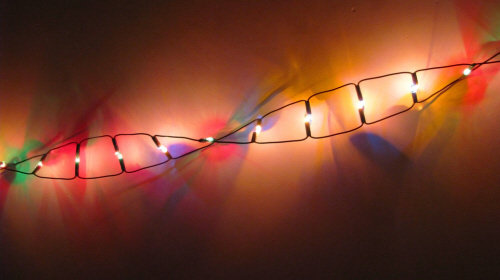
Originally posted by the .
Last week the Ninth Circuit Court of Appeals said it would rehear the └Ž░─├┼┐¬Į▒Įß╣¹ of Northern California's lawsuit challenging a California law that mandates that DNA is collected from anyone arrested on suspicion of a felony. This suit is the only civil suit in the country challenging a disturbing trend toward invasive DNA collection of people who haven't been convicted of crime.
The federal class-action lawsuit,, was filed on behalf of Lily Haskell and three other plaintiffs who were forced to turn over a cheek swab of their genetic blueprint to police. Lily was arrested after joining a peace rally in San Francisco. Although she was released without any charges, her DNA is now stored in national databank.
Lily Haskell and the └Ž░─├┼┐¬Į▒Įß╣¹ are seeking to stop California's policy of mandating that DNA be collected from anyone arrested for a felony, whether or not they are ever charged or convicted. The mandatory DNA collection policy is a result of Proposition 69, which was enacted by California voters in 2004 and went into effect on January 1, 2009.
Under Prop 69, anyone who is merely arrested for a felony must provide a DNA sample that will then be stored in a criminal database accessible to local, state, national, and international law enforcement agencies. Instead of being limited to serious, violent offenses, the new requirement even applies to someone accused of writing a bad check and could be used to take DNA from victims of domestic violence who are arrested after defending themselves as well as people who are simply wrongfully arrested.
It's plain and simple: this law violates constitutional guarantees of privacy and freedom from unreasonable search and seizure. Forcing someone to provide a DNA sample without any judicial oversight violates the Constitution. Under this law, innocent Californians will be subject to a lifetime of genetic surveillance because a single police officer suspected them of a crime.
A about the lawsuit makes this clear point: "DNA is not just a technological progression from fingerprinting. It is qualitatively different. As such, it needs to be treated as more than a mere formality of a police booking procedure."ŌĆé
Background: The United States Court of Appeals for the Ninth Circuit on July 13, 2010. On February 23, 2012, a divided three-judge panel of the Ninth Circuit upheld the law. The └Ž░─├┼┐¬Į▒Įß╣¹ asked for en banc review (review by the full Court). Those oral arguments will take place the week of September 17.
Learn more about DNA collection: Sign up for breaking news alerts, , and .


